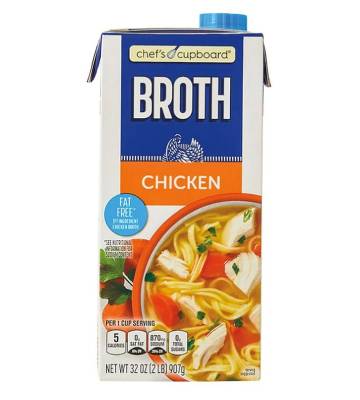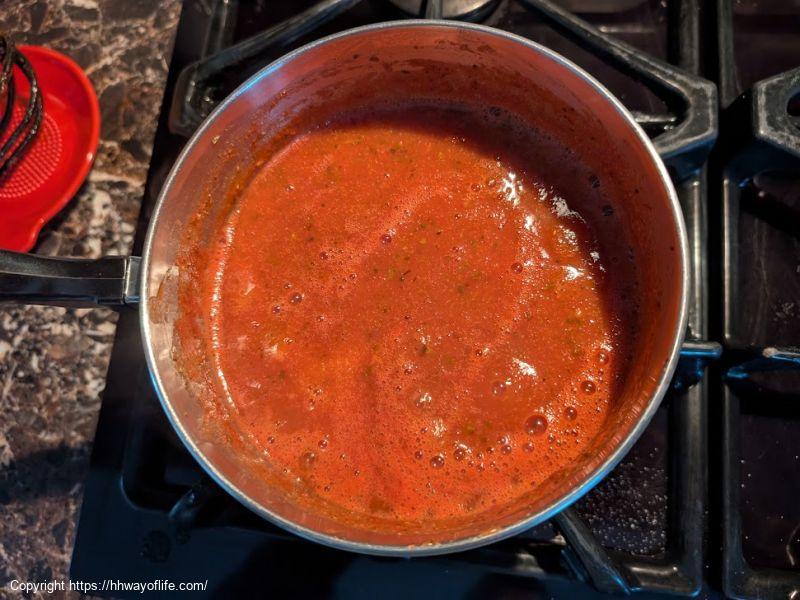Food Nutrition Facts
Nutrition Facts For
Chicken - Broth
Portion Size: 1 Cup
| Nutrient | Value | % Daily Value* |
|---|---|---|
| 40.0 kcal | 2% | |
| 0.5 g | 0% | |
| 0.0 g | 0% | |
| 5.0 mg | 2% | |
| 95 mg | 4% | |
| 44.0 mg | 1% | |
| 0.0 g | ||
| 0.0 g | ||
| 1.0 g | ||
| 0.0 g | ||
| 9.0 g | ||
| Chicken |
*Daily value based on a 2,000 calorie diet. Your daily values may be higher or lower depending on your calorie needs and health goals.
Calculate your daily calorie needs here
Nutrition Facts For 1 Cup of Chicken - Broth

Chicken broth is a flavorful liquid made by simmering chicken bones, meat scraps, and vegetables in water. This process extracts the essence of the chicken and other ingredients, creating a light yet savory base for countless dishes. A good chicken broth is characterized by its clear appearance, rich aroma, and delicate chicken flavor. It should be well-balanced, with a subtle sweetness from the vegetables complementing the savory chicken notes. While commercially produced broths are readily available, homemade chicken broth often boasts a deeper, more complex flavor due to the use of higher quality ingredients and longer simmering times.
Chicken broth serves as a fundamental building block in cuisines around the world. It's the essential starting point for soups, stews, and sauces, adding depth and complexity that water alone simply can't provide. It can also be used to moisten rice and grains during cooking, infusing them with subtle chicken flavor. Beyond its culinary uses, chicken broth is often enjoyed on its own as a light, comforting beverage, particularly when feeling unwell. Its gentle flavor and nourishing qualities make it a versatile and indispensable ingredient in any kitchen.







